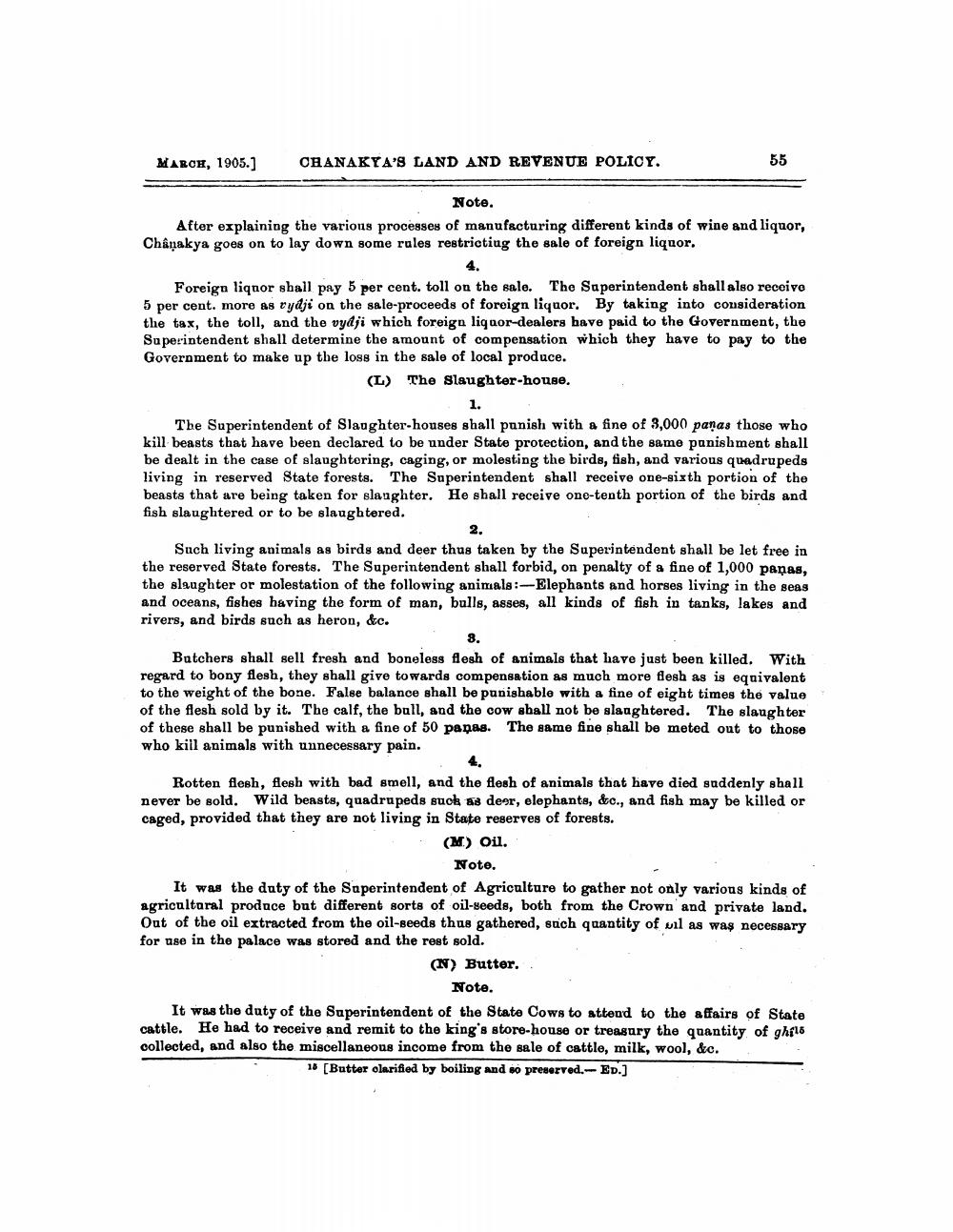________________
MARCH, 1905.]
CHANAKYA'S LAND AND REVENUE POLICY.
55
Note. After explaining the various processes of manufacturing different kinds of wine and liquor, Chanakya goes on to lay down some rales restricting the sale of foreign liquor,
Foreign liquor shall pay 5 per cent. toll on the sale. The Superintendent shall also receive 5 per cent. more as rydji on the sale-proceeds of foreign liquor. By taking into consideration the tax, the toll, and the vydji which foreign liquor-dealers have paid to the Government, the Superintendent shall determine the amount of compensation which they have to pay to the Government to make up the loss in the sale of local produce.
(L) The Slaughter-house.
The Superintendent of Slaughter-houses shall punish with a fine of 3,000 panas those who kill beasts that have been declared to be under State protection, and the same punishment shall be dealt in the case of slaughtering, caging, or molesting the birds, fish, and various quadrupeds living in reserved State forests. The Superintendent shall receive one-sixth portion of the beasts that are being taken for slaughter. He shall receive one-tenth portion of the birds and fish slaughtered or to be slaughtered.
Such living animals as birds and deer thus taken by the Superintendent shall be let free in the reserved State forests. The Superintendent shall forbid, on penalty of a fine of 1,000 panas, the slaughter or molestation of the following animals:-Elephants and horses living in the seas and oceans, fishes having the form of man, bulls, asses, all kinds of fish in tanks, lakes and rivers, and birds such as heron, &c.
Butchers shall sell fresh and boneless flesh of animals that have just been killed. With regard to bony flesh, they shall give towards compensation as much more flesh as is equivalent to the weight of the bone. False balance shall be punishable with a fine of eight times the value of the flesh sold by it. The calf, the ball, and the cow shall not be slaughtered. The slaughter of these shall be punished with a fine of 50 paņas. The same fine shall be meted out to those who kill animals with unnecessary pain.
Rotten flesh, flesh with bad smell, and the flesh of animals that have died suddenly shall never be sold. Wild beasts, quadrupeds suok as deer, elephants, &c., and fish may be killed or caged, provided that they are not living in State reserves of forests.
(M) Oil.
Note. It was the duty of the Superintendent of Agriculture to gather not only various kinds of agricultoral produce but different sorts of oil-geeds, both from the Crown and private land. Out of the oil extracted from the oil-seeds thus gathered, such quantity of uil as was necessary for use in the palace was stored and the rest sold.
(N) Butter.
Note. It was the duty of the Superintendent of the State Cows to attend to the affairs of State cattle. He had to receive and remit to the king's store-house or treasury the quantity of ghili collected, and also the miscellaneous income from the sale of cattle, milk, wool, &c.
18 (Butter clarified by boiling and so preserved. -ED.)




